Toxic Tidbits: Unchecked Dangers Lurking in Chinese Food Ingredients
In diverse culinary experiences, Chinese cuisine stands out for its rich flavors and unique ingredients. From mouthwatering stir-fries to delicate dim sum, Chinese dishes have captured food enthusiasts’ hearts and taste buds worldwide. However, beneath the allure of this culinary heritage lies a lesser-known reality: the potential risks associated with particular commonly eaten food and ingredients from China. While enjoying it is a delightful experience, being informed about the hidden challenges that can affect your health and dining satisfaction is crucial. In this article, we journey through the often-unseen aspects of Chinese culinary culture. We explore a range of concerns, from food safety and ingredient authenticity to unexpected contaminants and additives. By shedding light on these issues, we aim to empower you to make informed choices.
Steeped in Danger: The Toxic Truth About Chinese Tea
Chinese tea, celebrated for centuries for its rich flavors and health benefits, has an unexpected side: the potential presence of toxins. While enjoying a cup of Chinese tea can be a delightful and soothing experience, it’s essential to be aware of the hidden risks that can lurk in your teapot.
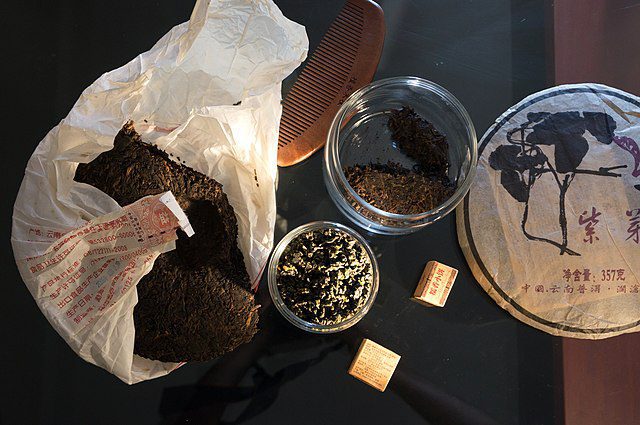
One of the primary concerns is the presence of harmful toxins, which include pesticides, heavy metals, and even dangerous chemicals like lead. The extensive use of pesticides in Chinese agriculture, while aimed at increasing crop yields, has raised alarm bells about pesticide residues in tea leaves.
Mixed Beef: Quality Concealed by Blending
Blending beef with other products to stretch and disguise it raises concerns about authenticity and transparency. It’s not merely about beef’s flavor; it’s a matter of knowing what’s on your plate. When exploring beef-based Chinese dishes, opt for restaurants and markets that prioritize the integrity of their ingredients.
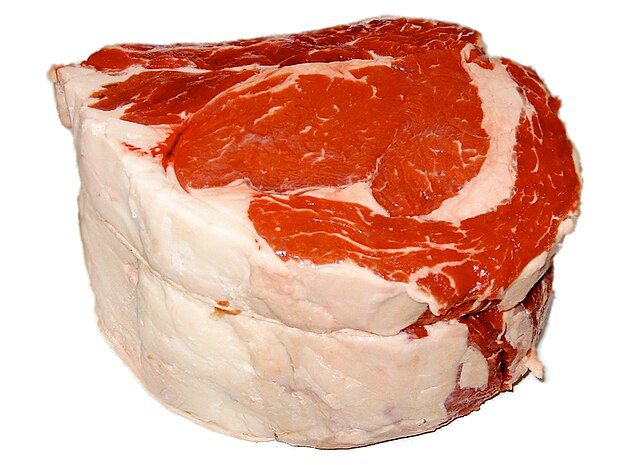
Additionally, understanding the origin of your beef is essential. Investigate the supply chain and choose restaurants or markets committed to sourcing from reputable producers. This approach guarantees a dining experience that aligns with your expectations and appreciation for unadulterated meat products.
Imported Apple Juice May Contain Arsenic
A refreshing glass of apple juice can be a delightful treat, but it’s essential to be mindful of the source of your juice, mainly when imported from China. Some reports have raised concerns about imported apple juice containing traces of arsenic, which poses serious health risks when consumed in large amounts over time.
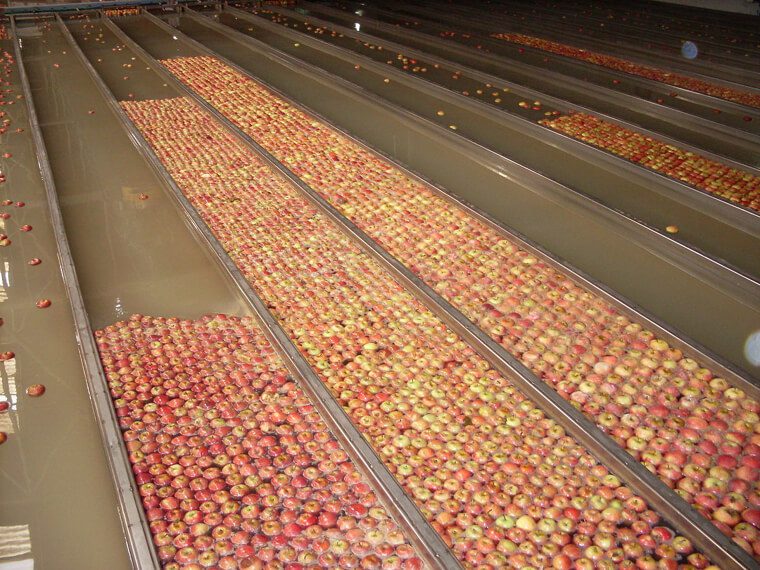
Check the label for origin or opt for locally sourced products to ensure your apple juice is safe for consumption. Additionally, various organic and certified brands have rigorous quality control measures to minimize the risk of contaminants such as arsenic.
Table Salt Laden With Heavy Metals
Salt is a kitchen staple used worldwide, and China is a significant producer of table salt. However, some concerns have been raised about the quality of certain Chinese table salts, particularly regarding heavy metal contamination. Heavy metals, such as cadmium and lead, can be harmful when ingested over time.
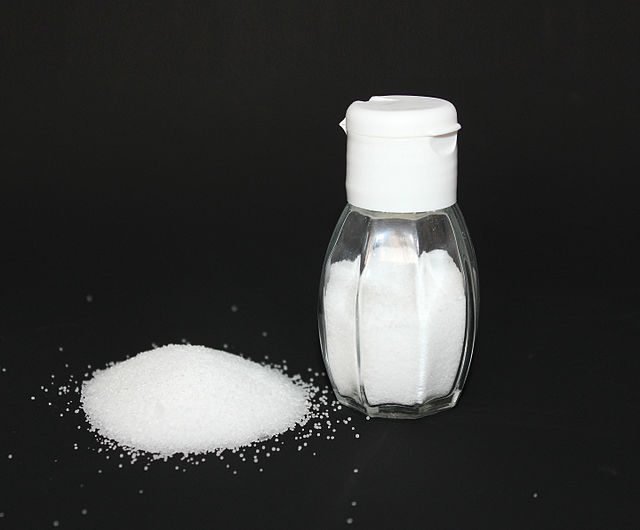
Choose reputable brands that adhere to strict quality standards to ensure your salt is free from heavy metal contaminants. Alternatively, you can explore options like Himalayan pink salt or sea salt, which often undergo rigorous testing to ensure their purity.
Rice Noodles With Sulfur Dioxide
Chinese cuisine is known for its delightful variety of noodles, and rice noodles are a staple. However, there’s a hidden ingredient that might surprise you: sulfur dioxide. This preservative is used to maintain the noodles’ color and texture during transportation and storage.
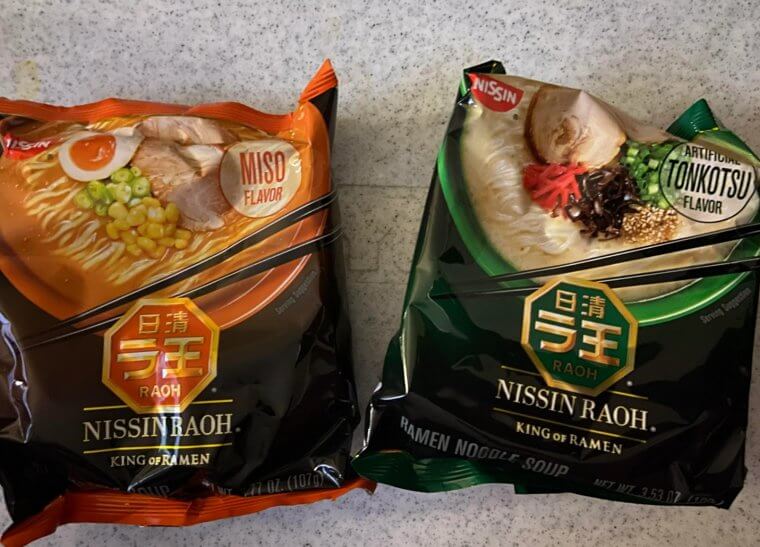
While it’s generally considered safe in small quantities, excessive sulfur dioxide consumption can cause adverse reactions in sensitive individuals, such as respiratory or allergic reactions. It’s essential to be aware of this ingredient when enjoying your favorite rice noodle dishes.
Cans of Peaches With a Lead Lining
Canned fruits can be a convenient addition to your pantry, but paying attention to the packaging is essential. In some cases, cans of peaches imported from China have raised concerns due to their lead lining. Lead exposure can have severe health consequences, especially in young children and pregnant women.
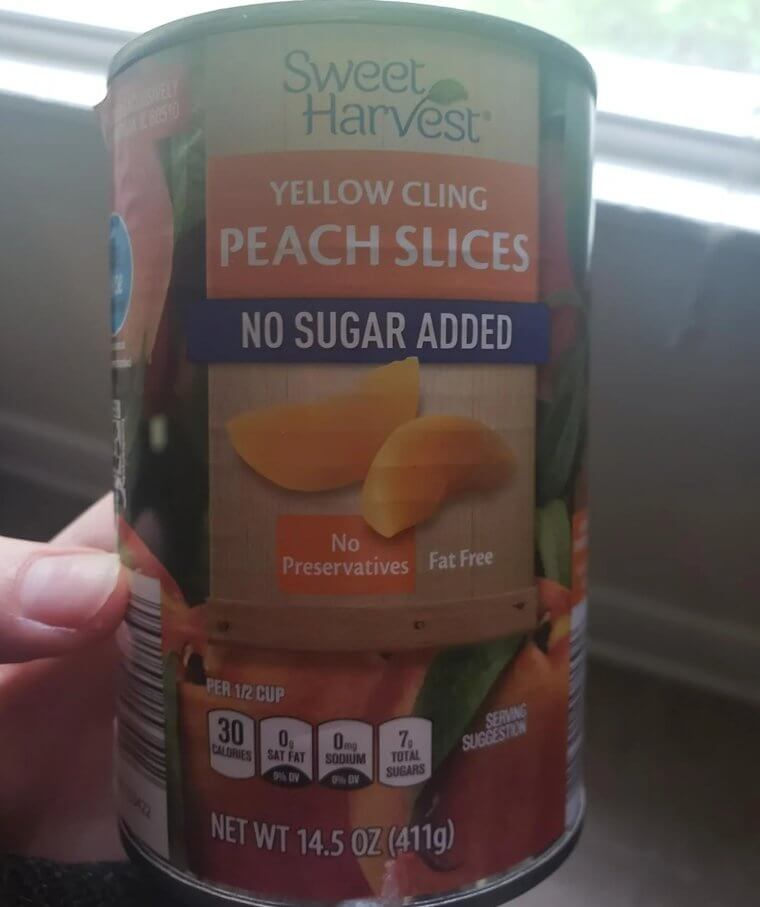
While canned peaches offer convenience, it’s crucial to be aware of lead exposure due to lead-lined cans. This toxic element can have adverse health effects. To enjoy canned fruits without worry, consider purchasing products with BPA-free or lead-free linings, readily available today.
Imported Baby Formula May Contain Melamine
Imported baby formula from China has raised concerns due to potential melamine contamination. Melamine, a chemical used in various industrial applications, was infamously linked to a significant food safety scandal in the country in 2008, which resulted in kidney damage in infants.
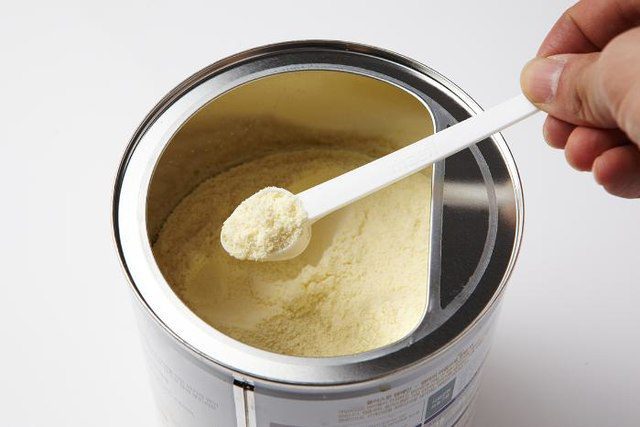
When present in baby formula, this chemical can pose serious health risks, especially to infants. Ensuring your baby’s safety is paramount. You can research brands with transparent sourcing and rigorous quality standards. Many manufacturers prioritize the safety and health of infants, subjecting their products to thorough testing to minimize risks.
Recycled Oil
The cooking oil in preparing your favorite Chinese dishes influences their flavor and quality. However, in some cases, cooking oil in street food or less reputable establishments undergoes recycling. This practice involves using oil multiple times, breaking down its molecular structure, and compromising its quality.
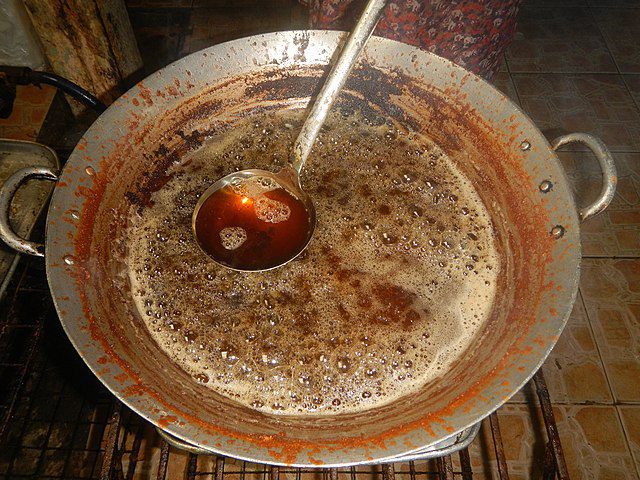
When it comes to enjoying delicious Chinese cuisine without concerns, consider dining at restaurants or choosing establishments that prioritize using fresh cooking oil. They typically invest in maintaining high food quality standards, ensuring your meal is a delightful and safe experience.
Disguise Mud Pellets as Black Pepper
Authenticity in spice markets can sometimes be challenging, and black pepper is no exception. In some regions, unscrupulous vendors have been known to disguise mud pellets as black pepper. These cleverly colored pellets can deceive even experienced cooks and compromise the taste and safety of your dishes.
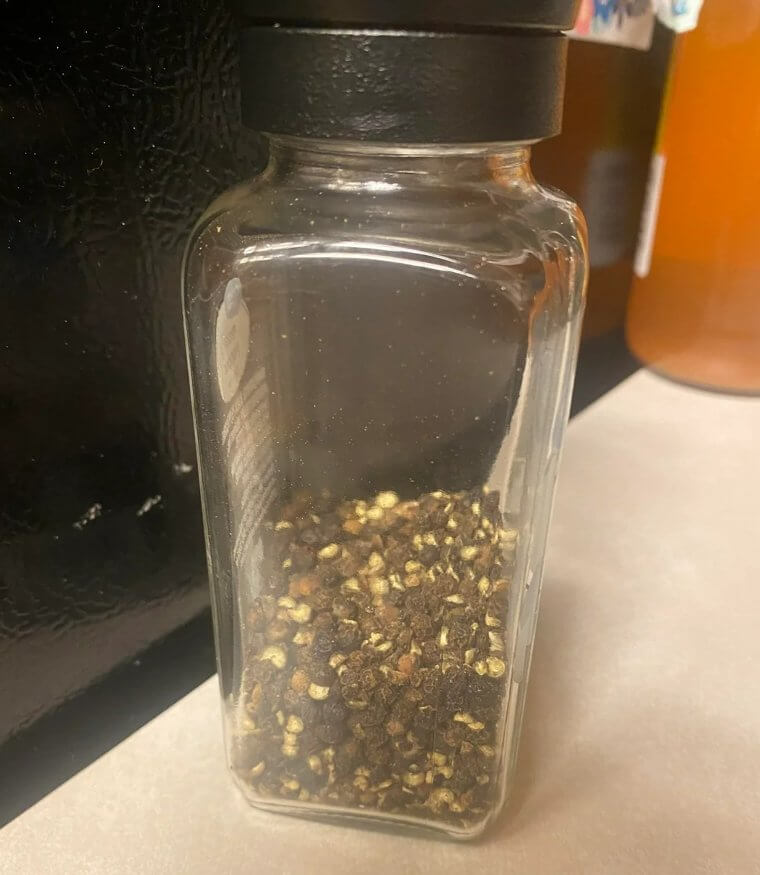
To ensure the authenticity of your spices, opt for whole peppercorns and grind them yourself, or purchase spices from reputable sources with stringent quality control measures in place. This way, you can savor the authentic flavors of Chinese cuisine and protect your palate from culinary deceptions.
Shrimp That Are Contaminated With Carcinogens
Shrimp dishes are a delight in Chinese cuisine, but the safety of the shrimp you consume is paramount. In some cases, imported shrimp from China have been found to contain carcinogens, substances that can promote cancer development. This discovery underscores the importance of discerning the source of your seafood.
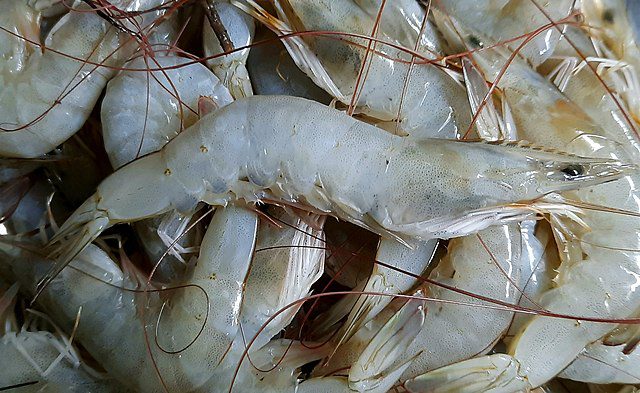
To mitigate risks associated with shrimp consumption, consider researching the sourcing practices of seafood suppliers and restaurants. Opting for products that prioritize safety and transparency in their production methods ensures you can indulge in delectable shrimp dishes without compromising your health.
Soy Sauce From China May Contain 4-Methylimidazole
While soy sauce is ubiquitous in Chinese cuisine, staying informed about potential health concerns associated with specific varieties is crucial. Some Chinese soy sauces may contain 4-methylimidazole, which can form during production. Although ongoing research investigates the health implications of this compound, some studies have linked it to concerns.
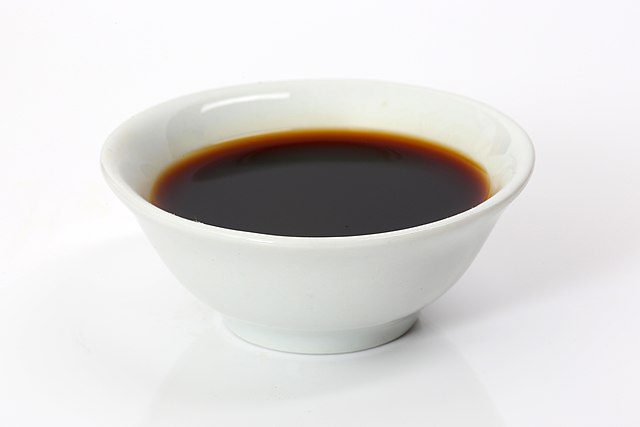
Exploring alternative soy sauce options is prudent, prioritizing quality and transparency in their production methods. Many reputable brands have rigorous quality control and aim to provide consumers with products that adhere to safety standards. This ensures that you can enjoy Chinese dishes without unnecessary health worries.
Be Cautious of Mislabeling Beef as Pork
In Chinese cuisine, there’s a concerning issue of meat mislabeling, especially with beef. Instances have been reported where diners unknowingly receive pork instead of the meat they ordered. This misrepresentation alters the dish’s flavor and impacts cultural and dietary preferences.
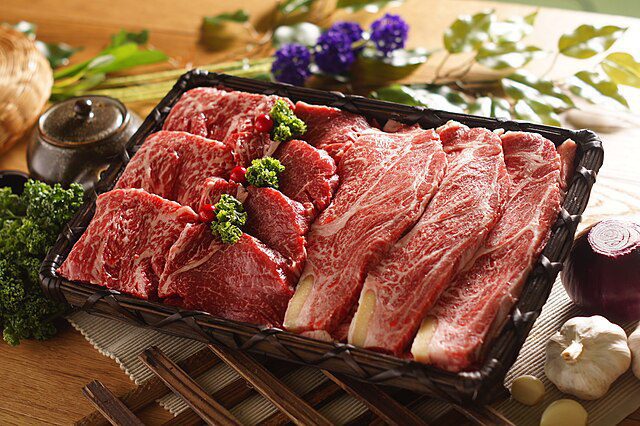
Ensuring that the meat matches your order is crucial, so choosing reputable restaurants and suppliers recognized for transparent sourcing practices is advisable. Vigilance and seeking information about the meat’s origin are essential steps to enjoy your preferred Chinese meat dishes confidently.
Synthetic Resin Detected in Rice
Rice is a dietary staple in many regions, including China, but reports have emerged about synthetic resin found in specific rice products. Synthetic resin, added for appearance enhancement and shelf life extension, is not a natural component of rice. Consuming synthetic resin introduces non-food-grade substances into your diet.
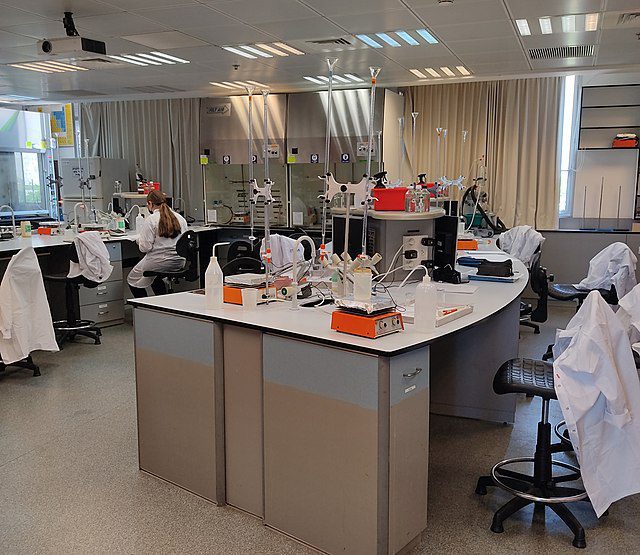
To mitigate such risks, opt for rice products from reputable brands and suppliers with a proven track record of adhering to stringent quality control measures. This ensures that you can enjoy pure and safe rice as part of your meals.
Canned Tuna: Lead Contamination Concerns
Canned tuna, known for its convenience as a protein source, has potential contaminants that require vigilance. In some instances, canned tuna, including those from China, has been found to contain traces of lead. Lead exposure can have severe health repercussions, especially for pregnant women and children.
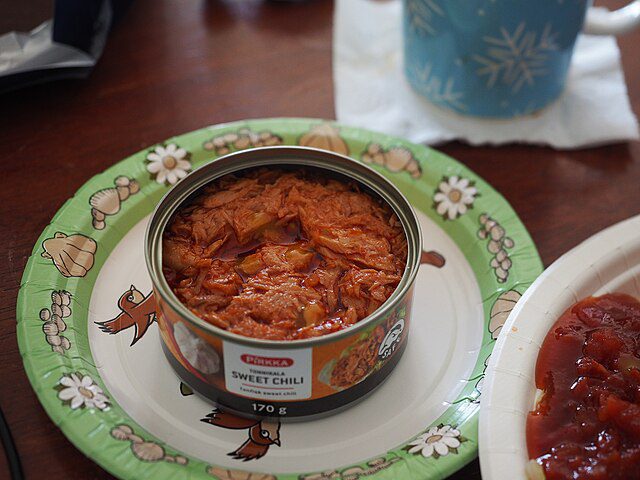
To safeguard your health, consider examining product labels for information about the tuna’s source and select products that undergo rigorous testing to ensure safety. By making informed choices; you can continue to appreciate the convenience of canned tuna without undue health concerns.
Frozen Fruits: Diverse Safety Standards
While frozen fruits offer convenience and nutrition, it’s vital to acknowledge that safety standards can vary. Some Chinese frozen fruit products have raised concerns due to potential pesticide residues or irregularities in processing and packaging. You can minimize potential risks by thoroughly cooking or washing frozen fruits before consumption.
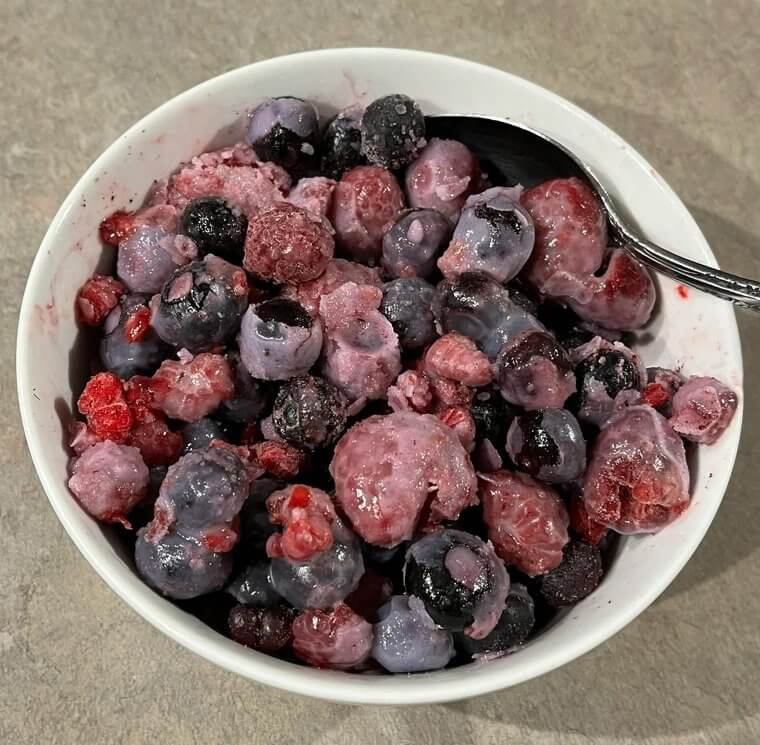
These issues jeopardize safety and affect the overall quality of frozen fruits. To relish the benefits of frozen fruits without compromising your wellbeing, consider verifying the product’s source and selecting trusted brands committed to rigorous safety and quality control in their frozen fruit offerings.
Tofu Quality Issues: Iron Sulfate and Contaminants
Tofu’s versatility in Chinese cuisine is undeniable, but the quality can be variable. Reports have surfaced regarding iron sulfate and even feces in certain tofu products from China. These contaminants have health implications and raise significant concerns about food safety.
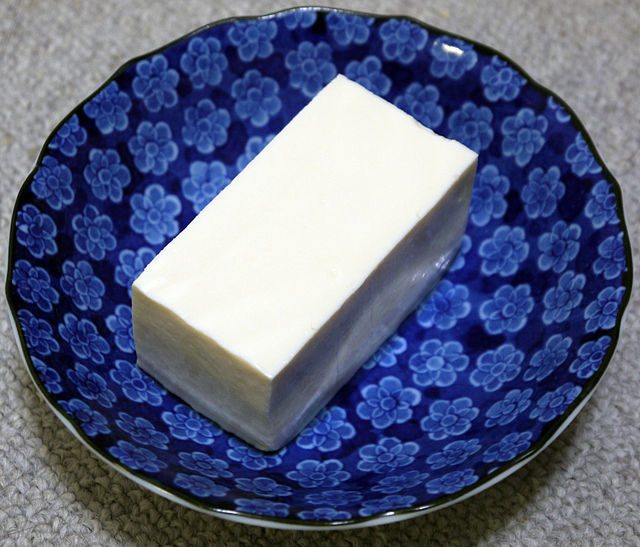
Enjoying tofu dishes without apprehension requires choosing from reputable sources that prioritize quality control and adhere to strict food safety standards. This ensures you can savor the flavors of Chinese cuisine with confidence in the safety of your meal.
Honey Dilution: A Sweet Deception
Honey, essentially pure sugar without any trace of fat and trace amounts of fiber and protein, is a common ingredient in various dishes, including Chinese cuisine. However, honey in Chinese cuisine has been faced with concerns of dilution with syrup, which impacts the flavor, quality, and authenticity.
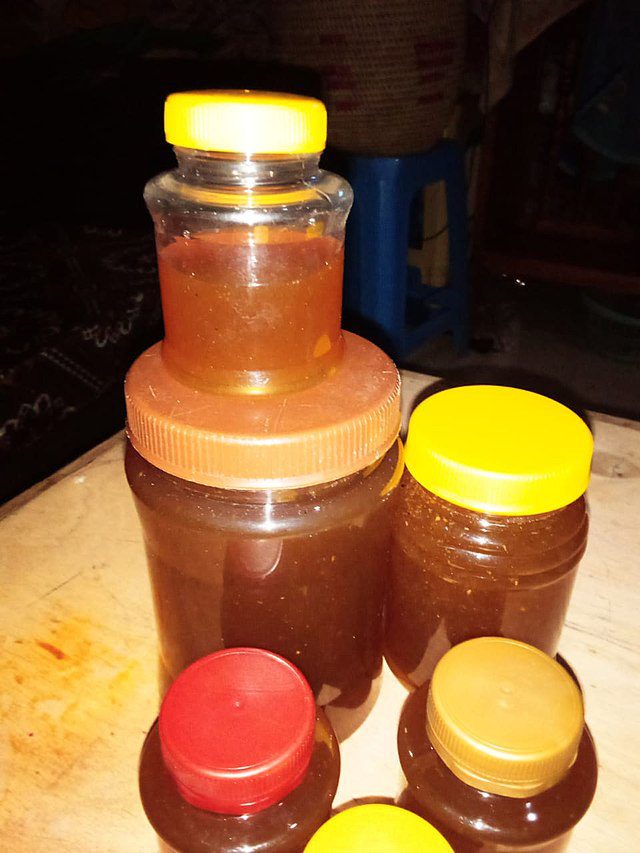
To guarantee the receipt of pure honey, consider purchasing solely from trusted sources that provide transparency regarding their sourcing and production methods. It elevates the sweetness of your dishes while preserving their integrity. Dilution allows people to make more money but comes with effects.
Eggs: Hidden Additives to Watch Out For
Eggs, a dietary staple, require caution regarding their quality. Reports have indicated the presence of calcium carbonate and paraffin in some Chinese eggs. Not naturally occurring in eggs, these substances may be introduced during processing, posing potential health risks to anyone who eats them.

Eggs, a versatile ingredient, should be free from additives like calcium carbonate and paraffin. Safeguard your culinary creations by choosing eggs from reputable sources with a strong focus on quality and purity. Carefully reviewing labels for information about the origin and processing allows you to enjoy dishes without compromising your health.
Cod Laden with Harmful Toxins
Cod is a treasured ingredient in Chinese cuisine. It can be easily prepared in various ways and is inexpensive. However, it’s essential to be aware of potential toxins lurking in it. Contaminants like mercury and pollutants can accumulate in the flesh, posing long-term health risks.

Being mindful of the fish’s origin can make a difference. Cods from China tend to be raised in subpar conditions and are often dirty and cramped. Cods caught in pristine waters generally have lower toxin levels, highlighting the significance of sustainable seafood choices.
Tapioca Pearls: PCB Contamination Warning
Tapioca pearls, a fundamental ingredient in popular bubble tea and desserts, come with concerns about potential contaminants. In certain instances, tapioca pearls, including those from China, have been found to contain polychlorinated biphenyls (PCBs), harmful chemicals that pose health risks.
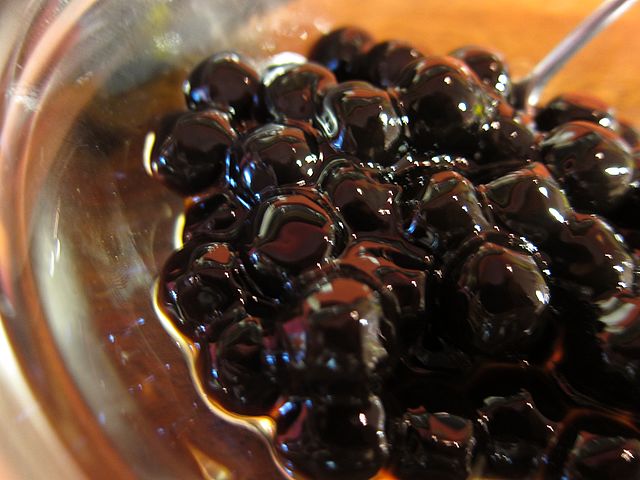
Consider sourcing tapioca pearls from reputable suppliers committed to quality control and compliance with safety regulations if you want to indulge in treats with peace of mind. This way, you can relish delicious bubble tea and desserts without compromising your wellbeing.
Chicken Susceptible to Disease
Chicken dishes are cherished in Chinese gastronomy, but concerns about poultry health are emerging. Reports suggest that some chickens may carry diseases or be processed under subpar hygiene standards, raising health risks. To ensure the safety of your chicken dishes, opt for trusted suppliers known for stringent hygiene practices and a commitment to livestock wellbeing.
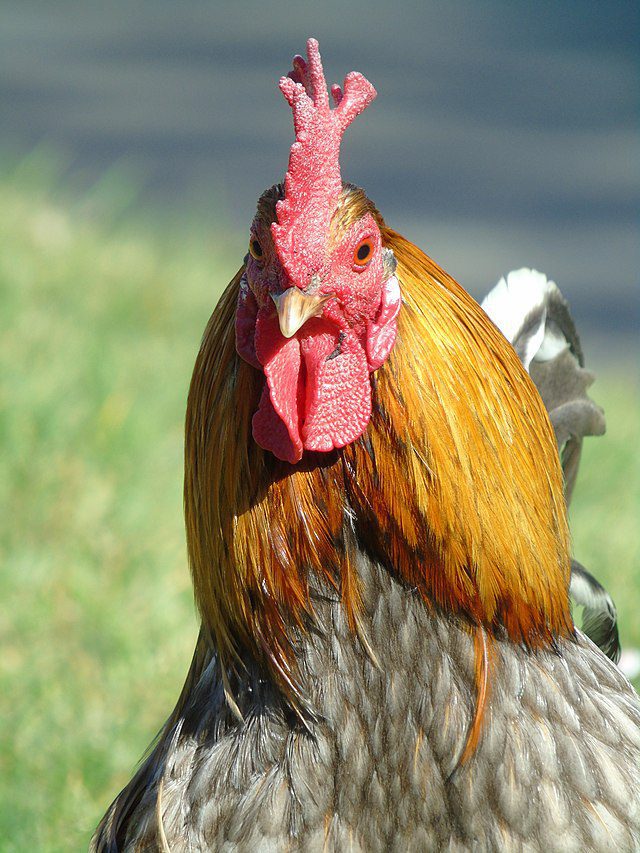
As much as possible, avoid chicken from China. If you’ve been watching the news, you must have surely come across cases of avian flu originating from the country. Although Avian influenza Type A viruses do not normally infect humans, severe cases have resulted in death.
Cabbage that Deceptively Appears Fresh, Yet Contains Formalin
Cabbage is a versatile staple in Chinese cuisine, but appearances can be deceptive. At times, they may be treated with formalin, a chemical used for preservation. This can not only impact your health but also the nutritional value of the vegetable.
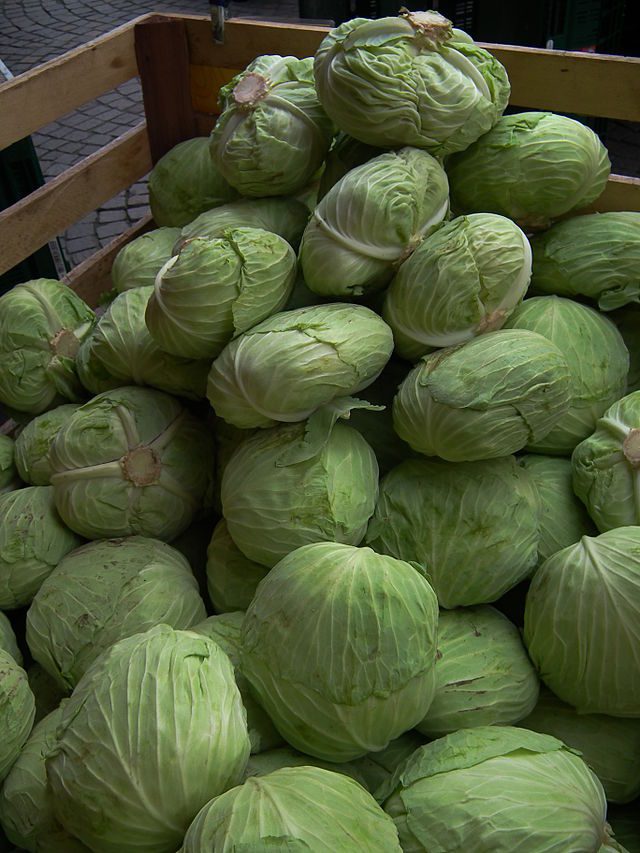
We understand that people need to make money, but this shouldn’t be done at the expense of people’s health. Formalin of formaldehyde is a carcinogen that can irritate and burn the eyes and skin and, in worst cases, cause pulmonary edema.
Tilapia: A Fish That Absorbs Chemicals
Tilapia is a popular fish choice in Chinese cuisine, but its reputation can be tarnished by the environment it’s raised in. This fish can absorb chemicals from its surroundings, primarily when grown in polluted waters or subjected to questionable farming practices.

Unlike other seafood caught in the wild, Tilapia is mainly grown in tanks. To enjoy it without concerns about chemical contaminants, it’s advisable to choose fish from reputable sources renowned for sustainable farming practices and unwavering commitment to safety standards.
Frozen Fish: Hidden Toxins in Your Freezer
Frozen fish offer convenience but may harbor unseen dangers. Contaminants like heavy metals and pollutants can accumulate in certain fish, which can pose health risks. Sourcing frozen fish from reliable suppliers is crucial, prioritizing rigorous contaminant testing to enjoy frozen fish safely.
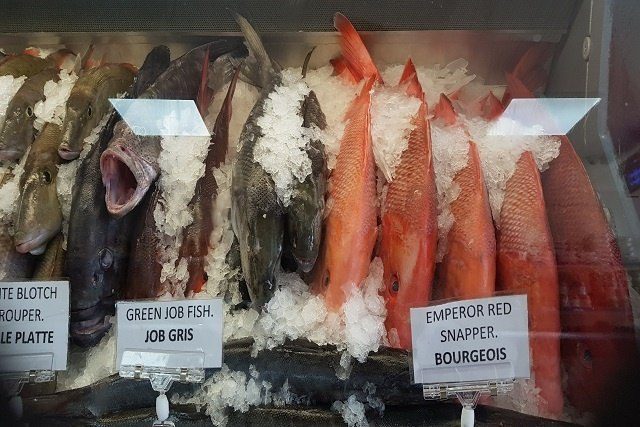
Considering the origin of your frozen fish is paramount. Fish from pristine waters generally have lower toxin levels, and sustainable fishing practices further reduce the risk of contaminants. Fish from China primarily thrive on pig and goose feces, something you wouldn’t want to ingest.
Pesticide-Laden Mushrooms: A Silent Threat
Mushrooms, celebrated for their versatility, can conceal a hidden danger: pesticides. Mushrooms from China aren’t how they appear to be. They have been found to contain excessive amounts of heavy metals and pesticides, and various imports from the country have been seized for containing banned chemicals.
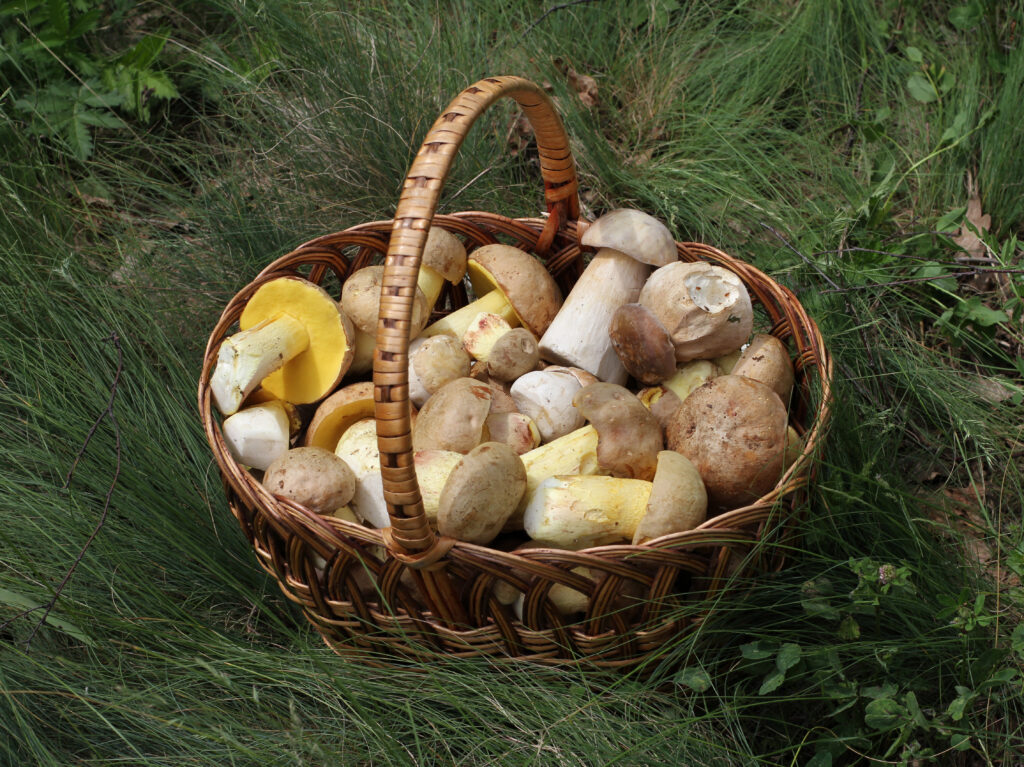
The tainted products have been returned or destroyed before they could harm consumers. Consuming mushrooms laden with these chemicals can jeopardize your health. To mitigate this risk, explore alternatives like organic mushrooms or consider cultivating your own. Alongside responsible sourcing, mastering safe handling and proper cooking methods is crucial.
Chinese Wines: Unveiling Surprise Ingredients
Fortunately, Chinese wines are not famous worldwide (there’s a good reason we’re saying this, which you’ll find out later), but they have a rich cultural history. Like most wines from other parts of the world, the base is made from grapes. However, a few varieties may contain unexpected and undisclosed ingredients.
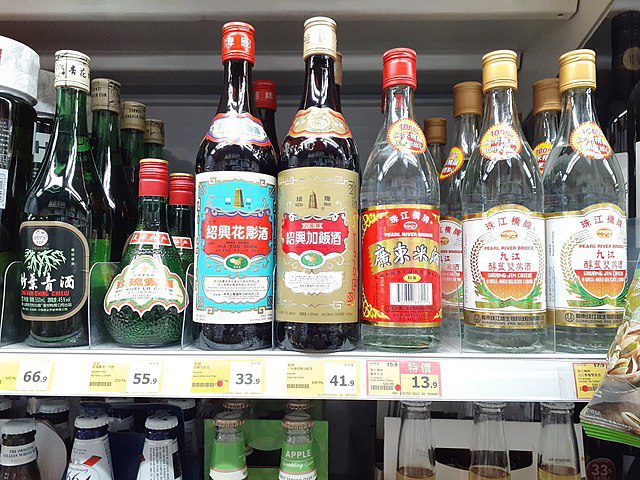
However, they add fillers such as chemical flavors, dyes, and artificial colors. If, for some reason, you’re traveling to the country and would like to buy local wines to take home to give to friends, remember that they are not wine in the strictest sense of the word but wine-like drinks.
Watermelon: A Hidden Host of Pesticides
Another Chinese produce that is full of pesticides is the watermelon. The quintessential summer treat harbors a less-appetizing secret. These chemicals, often present on the skin and within the fruit, can pose health risks when consumed. In 2021, the production of Chinese watermelons amounted to 61 million metric tons.
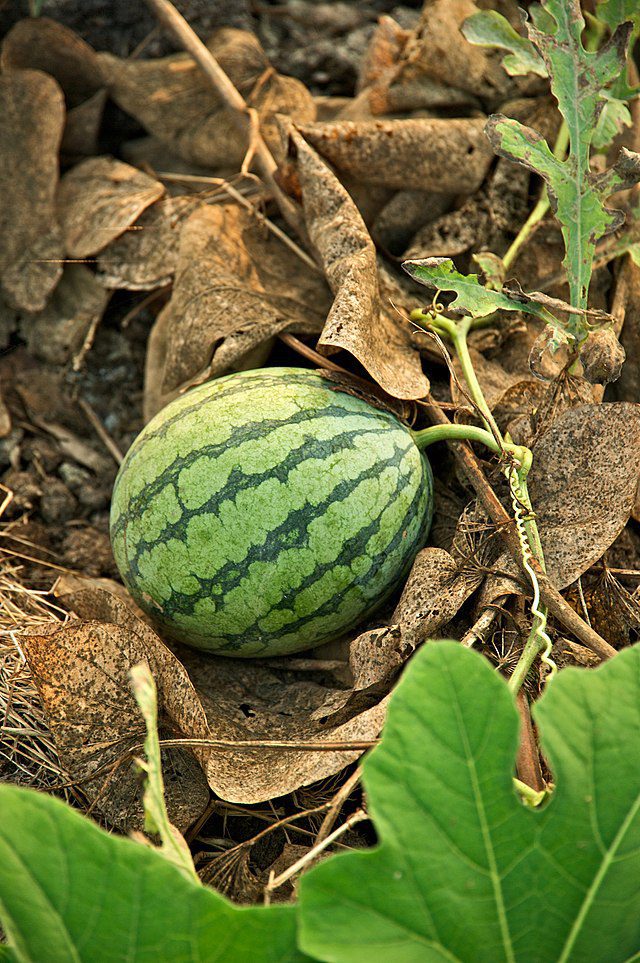
Enjoy watermelon safely by thoroughly washing and peeling it. Alternatively, opting for organic varieties can significantly reduce the likelihood of pesticide exposure. By adopting these precautions, you can relish the juicy sweetness of watermelon without compromising your wellbeing. You can also avoid watermelons from China altogether.
Melamine in Milk: A Controversial Concern
Chances are you don’t purchase milk from China, but you must be aware of this. Melamine, a chemical associated with safety concerns, has been detected in certain milk products. Melamine contamination can lead to adverse health effects, making it crucial to ensure the safety of your dairy choices.
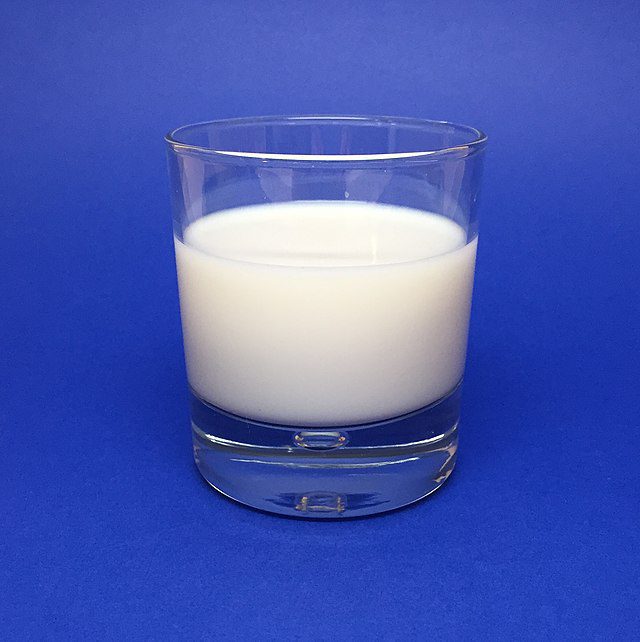
Review product labels and opt for milk from reputable brands or local dairy to reduce the risk of melamine contamination. Maintaining a discerning eye for product selection helps guarantee that your dairy consumption remains free from this controversial and dangerous compound.
Garlic Soaked in Pesticides: A Hidden Hazard
Garlic, an essential ingredient in most world cuisines, makes dishes smell nice and taste delicious. It is the building block of most dishes, and it’s easy for garlic to come into contact with pesticides during cultivation. Safeguarding your health involves more than sourcing from reliable suppliers; it requires diligent handling.
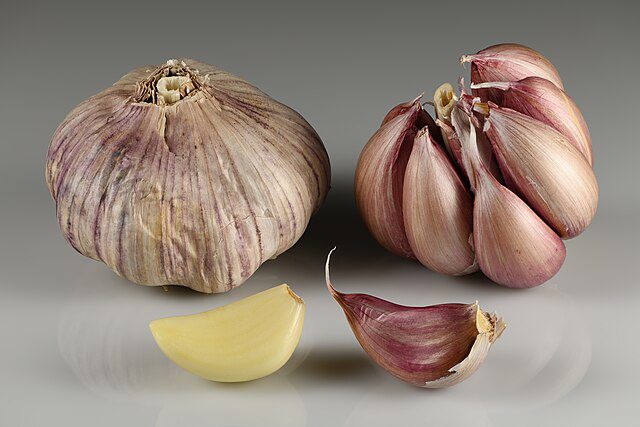
Soaking garlic cloves in water, peeling away the outer layers, and using the inner cloves minimizes pesticide residues. By adopting these precautions, you can continue to enjoy the robust flavors of garlic while prioritizing your health and enjoying different culinary creations.
Sweet Potato Noodles: Potential Hidden Dangers
Fans of Asian food might be familiar with sweet potato noodles. They have fewer calories than whole wheat pasta, so they are excellent options if you’re watching your weight. However, the beloved staple occasionally harbors unexpected hazards, industrial and artificial dyes hazardous to humans.
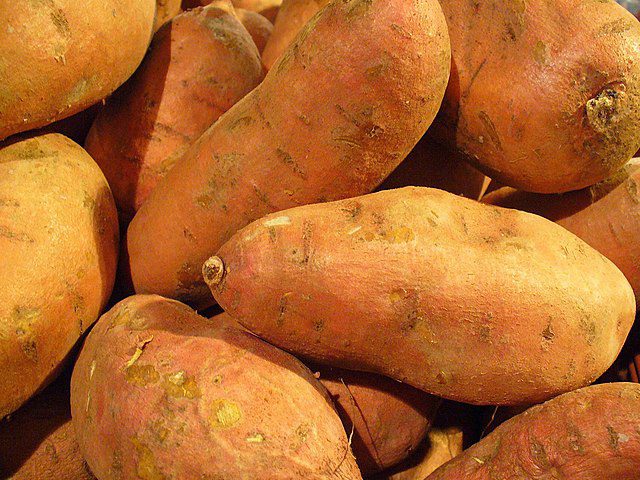
Responsible selection extends to reading product labels for ingredient information and avoiding brands with dubious reputations. Exploring homemade sweet potato noodle recipes offers complete control over the ingredients used, ensuring a dining experience free from harmful components.
Ginger From China: Hazardous Pesticides Alert
Ginger has various uses in cooking. It can be added to liquids to flavor rice and soups and is a common condiment in Indian, Japanese, and Chinese cuisine. It is often present in Chinese marinades, pickles, relishes, dressings, soups, and sauces.
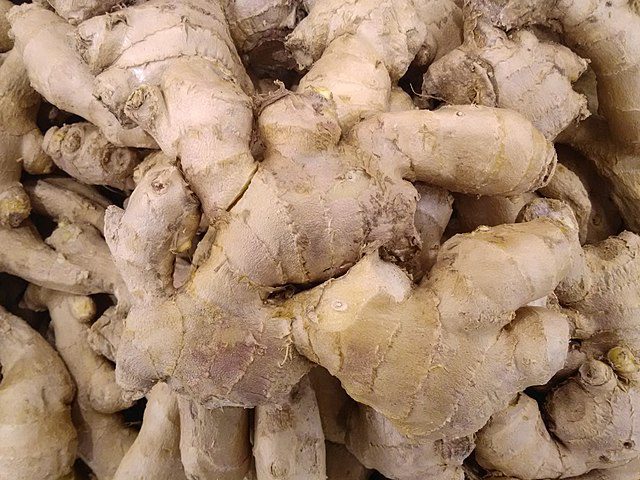
Ginger from specific Chinese regions raises concerns due to hazardous pesticides. Beyond selecting ginger from trusted suppliers, prioritize ginger products known for adhering to organic or sustainable farming practices. This ensures that you can incorporate the flavorful kick of ginger into your dishes without compromising your health.
Organic Food From China Isn’t Always Organic
Food labels in China are not always reliable. You can’t always rely on something that says “organic” to be what it claims. Due diligence is crucial, and it is a necessary to investigate certifications and sources when purchasing organic products.
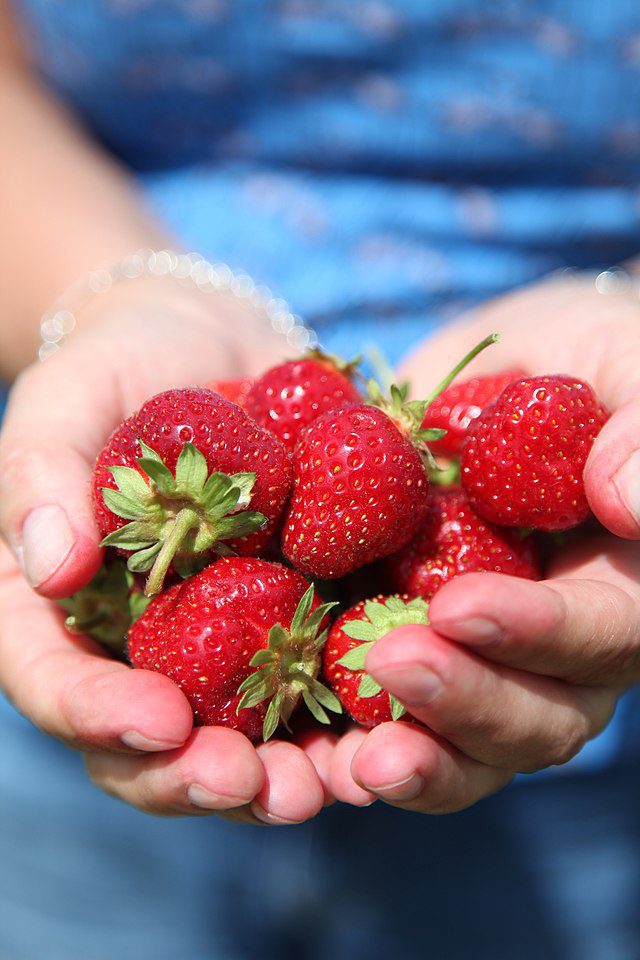
Some suppliers may not adhere to stringent organic standards, potentially compromising the quality of the food. Being discerning in your choices ensures that you genuinely enjoy the benefits of organic produce. Unlike in other countries, regulations are not as strict.
Frozen Spinach: Hidden Pesticide Levels
A cup of frozen spinach has four times the amount of iron, fiber, folate, and calcium than a cup of fresh spinach. However, this convenient option may hide an unsuspected danger—high pesticide levels. Yes, this is a persistent issue in most food products originating from China.
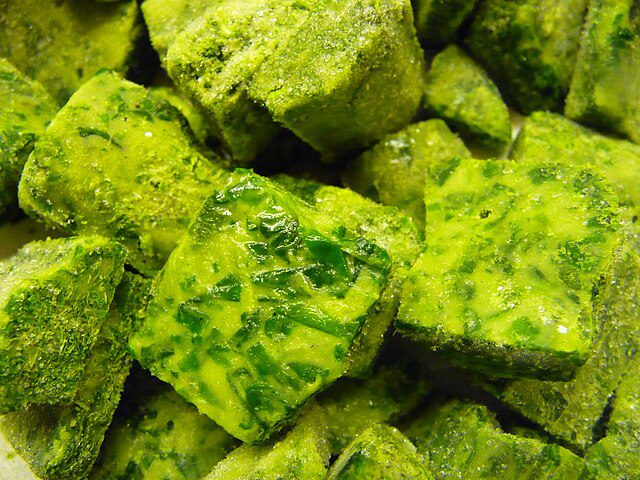
We are all aware of the risks chemicals pose to our health, so it’s important to choose reputable brands and have an awareness of the potential for elevated residues. Avoid buying frozen spinach from China and eating dishes made with such ingredients whenever possible.
Pufferfish Predicament: A Fish Full of Poison
Pufferfish, also known as fugu, is renowned for its delicate flavor but comes with a dangerous caveat. Ensuring the safe preparation and consumption of pufferfish involves relying on trained and licensed chefs who are experts in removing toxic parts. Consuming pufferfish without proper expertise can have life-threatening consequences.

Although some farmers in China claim to have devised methods that eliminate poison while raising fugu, remember that since the year 2000, more than 20 people have died in Japan from consuming pufferfish, a country where regulations are far more strict.
Lamb’s Uncertain Origins: A Potential Deception
Lamb, a staple in many cuisines, sometimes raises concerns about its authenticity. It may not always be what it appears, potentially concealing substitutions or deceptive origins. If you come across a ridiculously cheap lamb in China, prepare for a rude awakening that it may not be lamb at all.
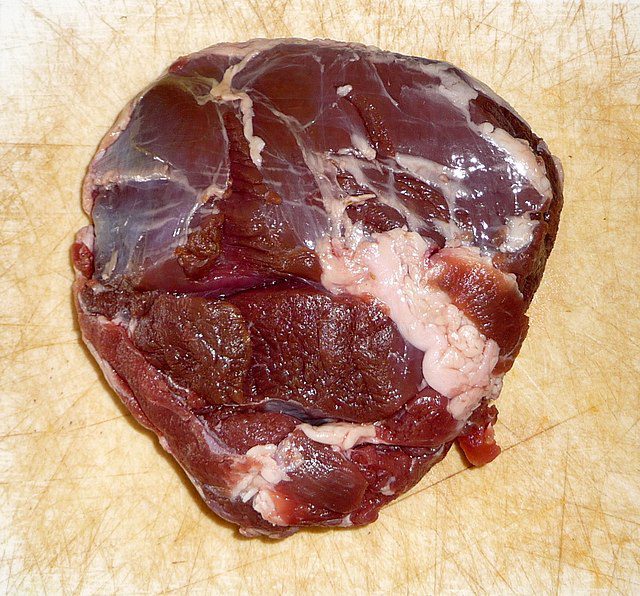
Hopefully, you’re not eating when you read this. In 2013, police found 20,000 pounds of what was marketed as lamb that turned out to be rat meat. They arrested almost a thousand people for the crime. We’re here praying that no one actually ate the meat in the pretense that it was lamb.
The Corn Conundrum: Unearthing Risky Additives
Corn, in its many culinary forms, from corn-on-the-cob to tortillas and beyond, often appears as a wholesome ingredient. However, recent concerns have emerged about the authenticity and purity of certain corn products, especially those from China. One of the primary concerns is the presence of risky additives.
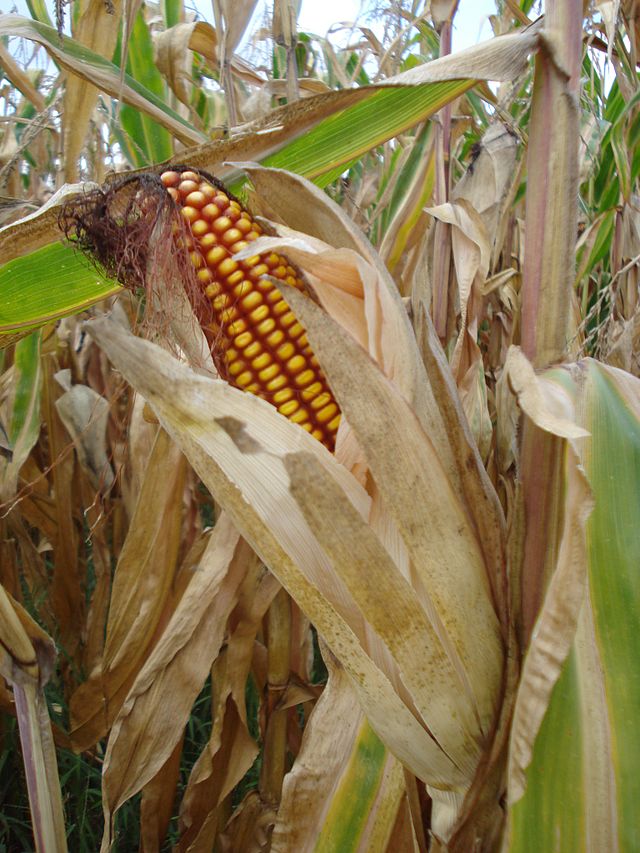
Furthermore, the lack of stringent regulations in some regions can result in unauthorized and potentially harmful additives making their way into corn-based products. This can include additives that enhance color, extend shelf life, or improve texture, all at the expense of consumer safety.
Green Peas: A Cautionary Tale of Impostors
Green peas, those delightful little spheres of flavor, might not always be what they seem. In a culinary masquerade, some peas are soybeans dressed up to mimic the appearance of their petite green counterparts. But this imitation game comes with a hidden cost: a cocktail of chemicals that can be hazardous to your health.
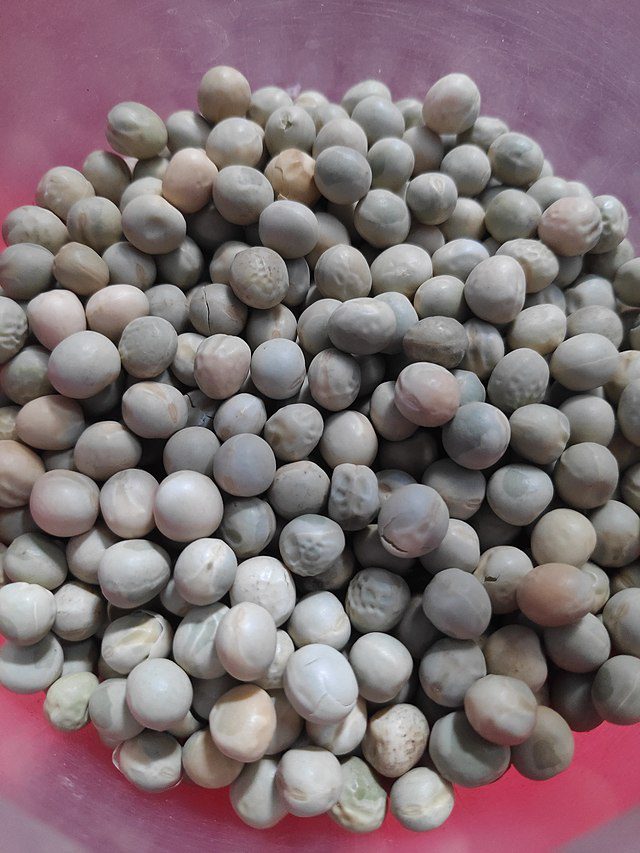
While green peas remain a beloved vegetable, the presence of impostors underscores the importance of cautious selection. By choosing your green peas wisely and advocating for transparency and authenticity in food production, you can continue to relish this classic side dish while safeguarding the integrity of your meal.
Blood Clams: A Silent Host for Hepatitis A
Blood clams, an enigmatic seafood delight savored in diverse cuisines, harbor a cryptic menace: the lurking threat of Hepatitis A. They got their name because of their higher hemoglobin content, making their blood red instead of clear like regular clams.
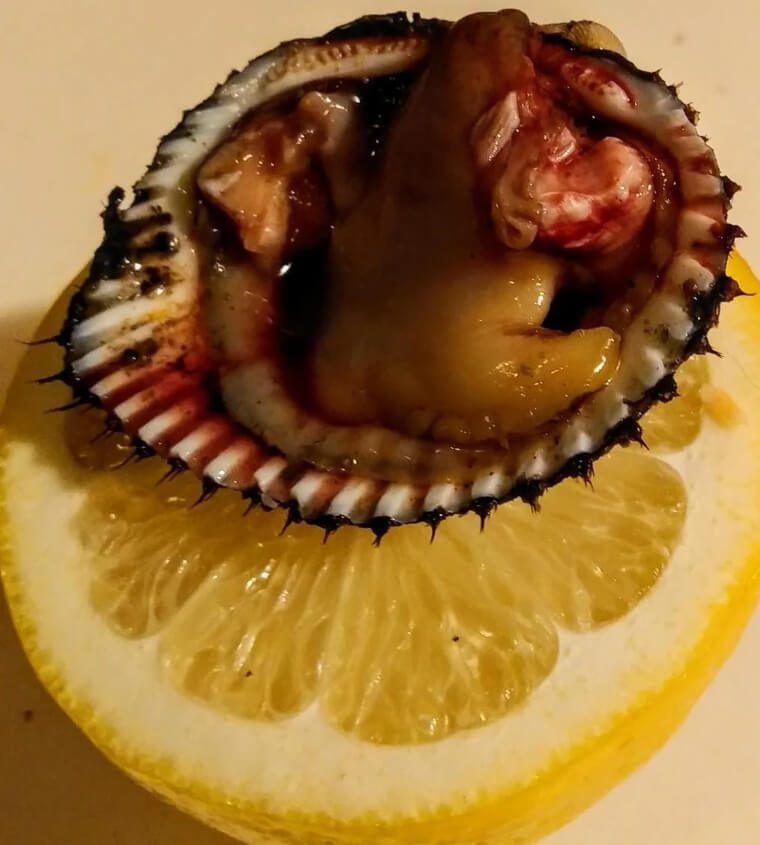
The genesis of this concern traces back to the habitats where blood clams flourish. Often nestled in coastal waters teeming with contaminants, these filter-feeding mollusks present an open invitation to viral incursions. This viral intruder can disrupt liver function, causing symptoms ranging from mild discomfort to severe illness.
Gutter oil: What Doesn’t Belong In the Kitchen
If you think recycled oil is nasty, wait until you read about gutter oil—a significant food safety concern in China. Gutter oil is a type of cooking oil recycled from the gutter, household drains, and grease traps. It likely contains other wastes, too.
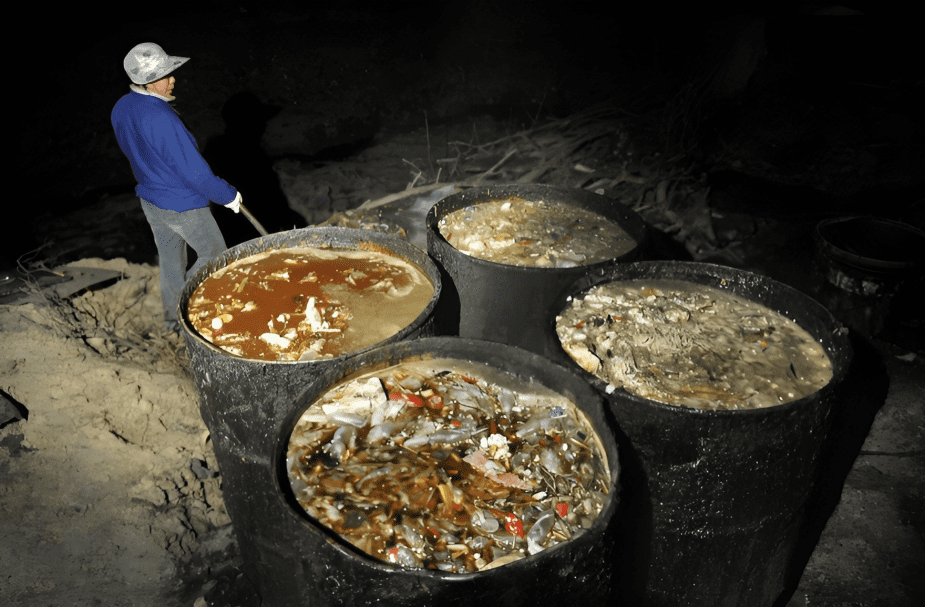
A series of simple processes that involve refining, mixing, filtering, and boiling turns it into edible oil. It is then sold into hole-in-the-wall restaurants, work cafeterias, and school canteens by unscrupulous characters. Long-term consumption of food cooked in gutter oil can cause various foodborne illnesses.
Salted Duck Eggs: Dyeing for Caution
Salted duck eggs have been a culinary delight for generations, and if you’ve been introduced to Asian food early, you might be familiar with them. They are renowned for their rich, salty taste. If you want to purchase a few, avoiding those from China is best.
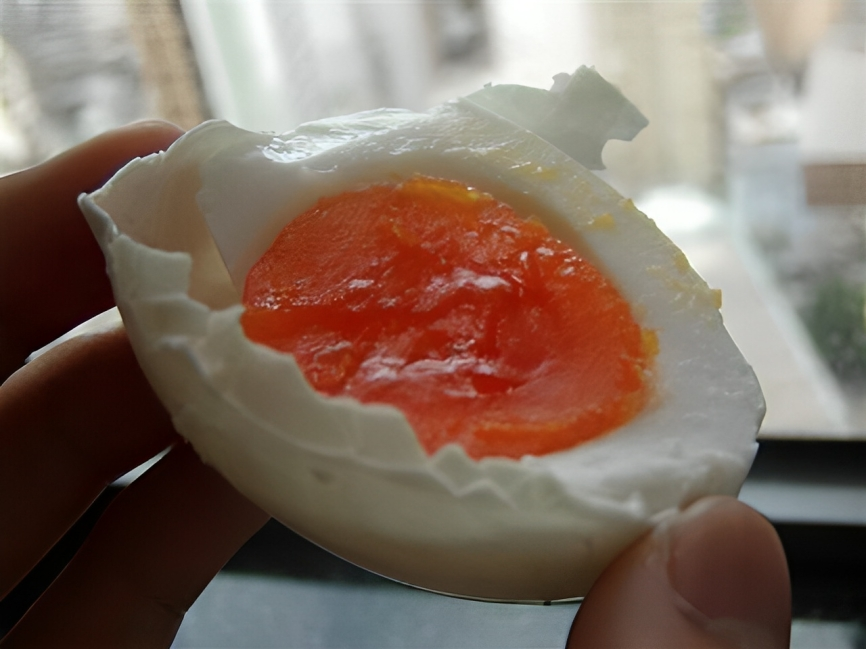
Recent concerns have arisen about the use of dangerous dyes to enhance their appearance, which pose health risks when consumed regularly. While the intent is to give salted duck eggs a vibrant and appealing appearance, the risks associated with these additives cannot be ignored.
